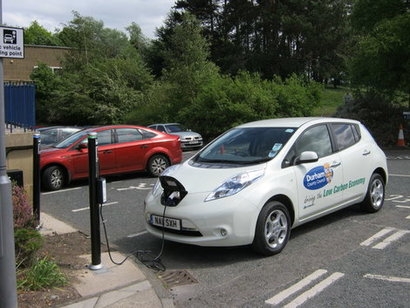
The National Grid analysis reveals that electric vehicles will be able to support the continued growth in renewables by storing excess generation and releasing it back onto the network when it is needed.
The report provides an insight into how the UK could be using energy in the future and where it could come from. It suggests that electricity demand is expected to grow significantly by 2050, driven by increased electrification of transport and heating. There could be as many as 11 million electric vehicles on our roads by 2030 and 36 million by 2040, but the increase in electricity peak demand could be as little as 8 GW in 2040 if consumers charge vehicles at off peak times and through vehicle-to-grid technology.
In three out of four scenarios, the report says gas continues to provide more energy than electricity by 2050 and remains the dominant form of heating well into the 2030s. However, its usage patterns will change, providing flexibility for both heat and electricity generation, complementing renewables.
“The continued growth in electric vehicles, a greater volume of low carbon generation and the advancement of storage technology, are among the major trends that have emerged from this year’s report” said Fintan Slye, Director, UK System Operator at National Grid. “This means balancing energy supply and demand will become increasingly complex between now and 2050. The growth of decentralised generation, meeting carbon reduction targets for heat and the continued importance of gas furthers the need for a co-ordinated approach across the whole industry.”
Mr Slye added that the scenarios are not predictions, but they aim to be a catalyst for debate, decision making and change, and provide transparency to the wider industry.
“We are already operating in an exciting period of change – a trend which is set to continue, certainly up to 2050 and beyond” he said.
Energy and Clean Growth Minister Claire Perry said that the Government wants to position the UK as a leader in clean and efficient power for transport and heating. The Government has announced significant investment in EV charging infrastructure, including £30 million for investment in smart charging points.
However, Ms Perry also said that gas has a key role to play in the UK energy mix. Alongside natural gas from shale, the Government intends to explore options for “safe and secure domestic supplies of gas”, such as hydrogen and biogas, as indicated previously in its modern Industrial Strategy.
There are also signs that the Government may be considering ways in which to enable the return of onshore wind, but only for those communities that want onshore wind farms in their locality.
For additional information:
National Grid Future Energy Scenarios (FES) 2018
Department for Business, Energy & Industrial Strategy (BEIS)

